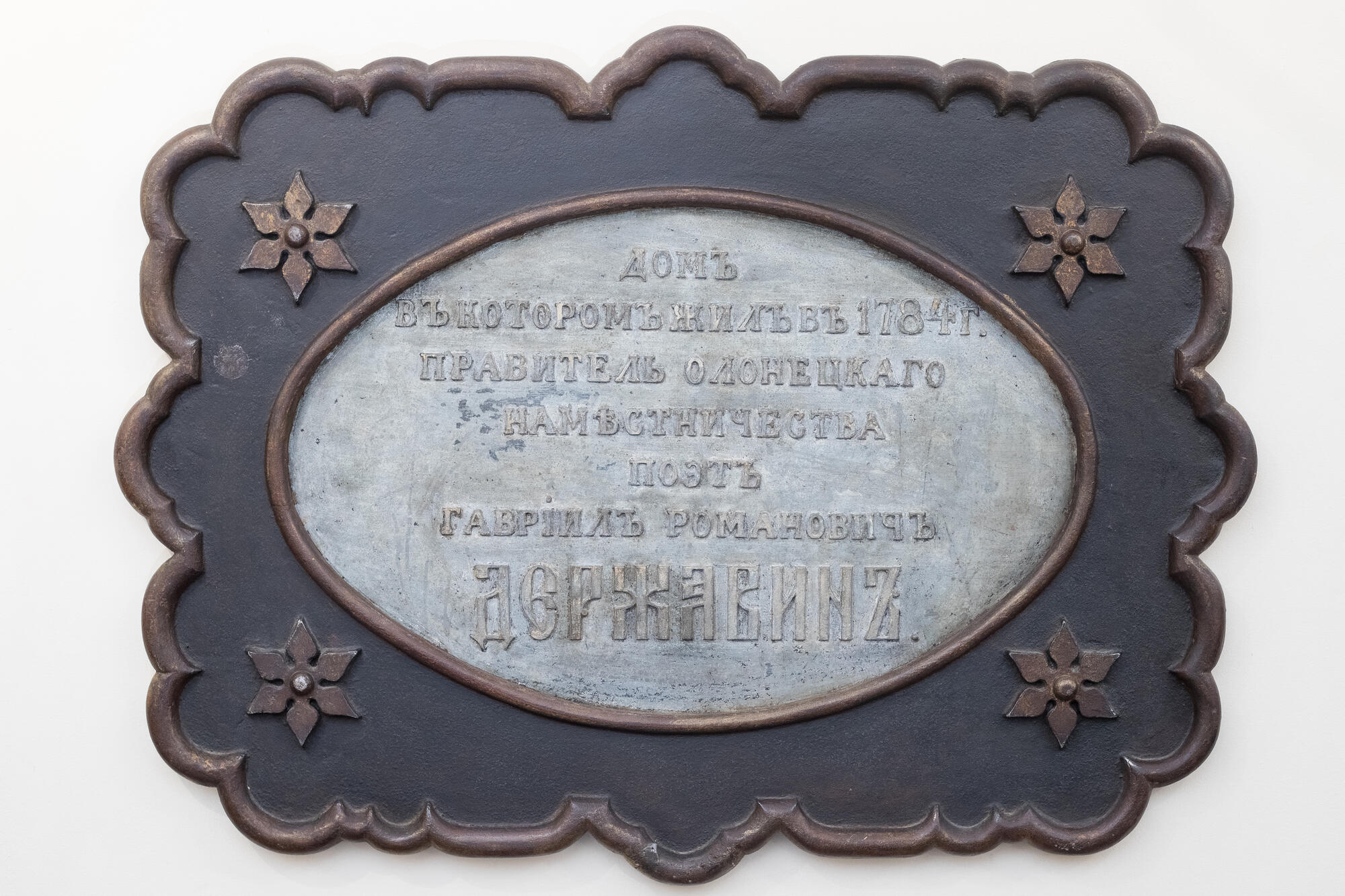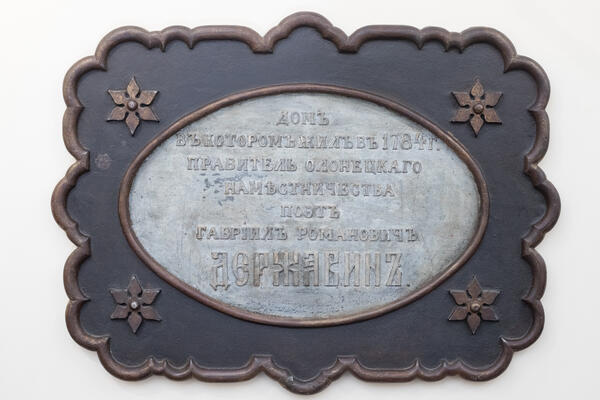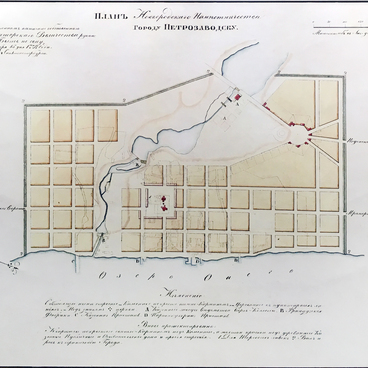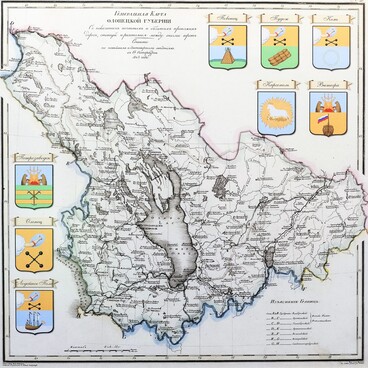Gavriil Derzhavin was the first governor of the Olonets province. He was born on July 3 (July 14), 1743 in the Kazan province into an impoverished noble family. He spent his childhood in the family estate in the village of Sokury. In 1762, the future poet and statesman entered the service of the Preobrazhensky regiment as an ordinary guardsman. After 10 years of service, he was promoted to the rank of ensign. In 1773–1775, Derzhavin participated in suppressing the uprising of Yemelyan Pugachev.
At 34, Derzhavin entered the state service in the Government Senate as a state councilor, and at 41, he was appointed the Olonets governor in Petrozavodsk.
Derzhavin served in Petrozavodsk for about a year, but he did a lot during this time: he traveled all over the province and compiled “A Daily Note”, in which he described this region not only as an official, but also as an ethnographer. When he was in office, the first town hospital was opened — the governor had personally contributed 200 rubles. He made a stone building on Round Square an archive, and brought a team of officials to Petrozavodsk, as well as collections of laws and furniture for public offices.
Derzhavin characterized himself better than anyone else, “I am harsh, but in truth one finds the devil!” He was not an easy man: he came into conflict with Governor-General Timofey Tutolmin and after a year in Petrozavodsk asked for a transfer to Tambov.
A memorial cast-iron plaque was put in 1896 on a wooden house in which Derzhavin lived in 1784–1785. On the plaque, there is an inscription, “The house, where in 1784, the ruler of the Olonets province, poet Gavriil Romanovich Derzhavin lived.” The former governor’s house was located on the Nagornaya Line (modern Karl Marx Avenue), later the building belonged to the mining department, and then it was sold to a private person. In Soviet times, it housed the People’s Commissariat of Labor. The building was destroyed during the Great Patriotic War.
The memorial plaque to Derzhavin is the first in Petrozavodsk. It was transferred to the museum from the People’s Commissariat of Labor of the Karelian Autonomous Soviet Socialist Republic in January 1929. According to some reports, the plaque was kept in a shed at the People’s Commissariat of Labor, which was located in the former house of Derzhavin
At 34, Derzhavin entered the state service in the Government Senate as a state councilor, and at 41, he was appointed the Olonets governor in Petrozavodsk.
Derzhavin served in Petrozavodsk for about a year, but he did a lot during this time: he traveled all over the province and compiled “A Daily Note”, in which he described this region not only as an official, but also as an ethnographer. When he was in office, the first town hospital was opened — the governor had personally contributed 200 rubles. He made a stone building on Round Square an archive, and brought a team of officials to Petrozavodsk, as well as collections of laws and furniture for public offices.
Derzhavin characterized himself better than anyone else, “I am harsh, but in truth one finds the devil!” He was not an easy man: he came into conflict with Governor-General Timofey Tutolmin and after a year in Petrozavodsk asked for a transfer to Tambov.
A memorial cast-iron plaque was put in 1896 on a wooden house in which Derzhavin lived in 1784–1785. On the plaque, there is an inscription, “The house, where in 1784, the ruler of the Olonets province, poet Gavriil Romanovich Derzhavin lived.” The former governor’s house was located on the Nagornaya Line (modern Karl Marx Avenue), later the building belonged to the mining department, and then it was sold to a private person. In Soviet times, it housed the People’s Commissariat of Labor. The building was destroyed during the Great Patriotic War.
The memorial plaque to Derzhavin is the first in Petrozavodsk. It was transferred to the museum from the People’s Commissariat of Labor of the Karelian Autonomous Soviet Socialist Republic in January 1929. According to some reports, the plaque was kept in a shed at the People’s Commissariat of Labor, which was located in the former house of Derzhavin



